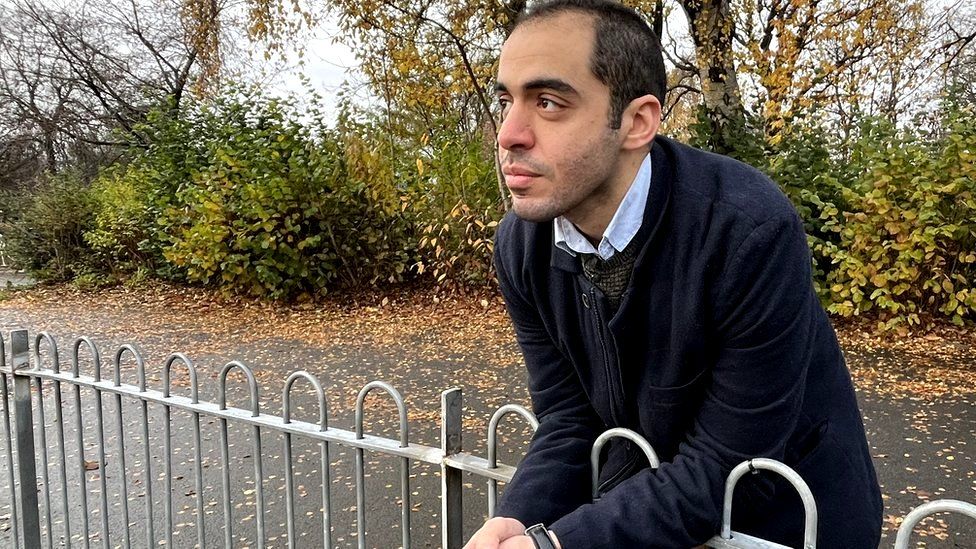-

-
-
Loading

Loading

Youssef Mikhaiel, an Egyptian man with a rare genetic disorder called Fabry disease, has been granted the right to stay in the UK until 2026. Mikhaiel was originally set to be deported in June, but the Court of Session in Edinburgh postponed his deportation. Fabry disease severely damages the heart, kidneys, and nervous system, and it is not possible for Mikhaiel to receive treatment for his condition in Egypt. The Home Office has now given him permission to stay for two years due to his "exceptional circumstances." Mikhaiel had previously been held at the Dungavel House detention centre for two weeks before his release. He expressed relief following the decision, stating that he can now access the necessary treatment and invest in himself. Fabry disease is an inherited condition that prevents the breakdown of fatty materials in the body, leading to chronic pain, high temperatures, and a reduced lifespan. Mikhaiel's case relied on a letter from officials at Misr International Hospital in Egypt, confirming that the required medicine for his disease was not available in the country and would result in suffering or death. Mikhaiel, a graduate engineer who arrived in Scotland on a student visa in 2016, will need to apply for an extension to his stay when his current permission expires. However, he is grateful for the chance to receive better treatment and is optimistic about his future. The Home Office declined to comment on individual cases but stated that all applications for leave to remain are carefully considered based on evidence provided and in accordance with immigration rules.